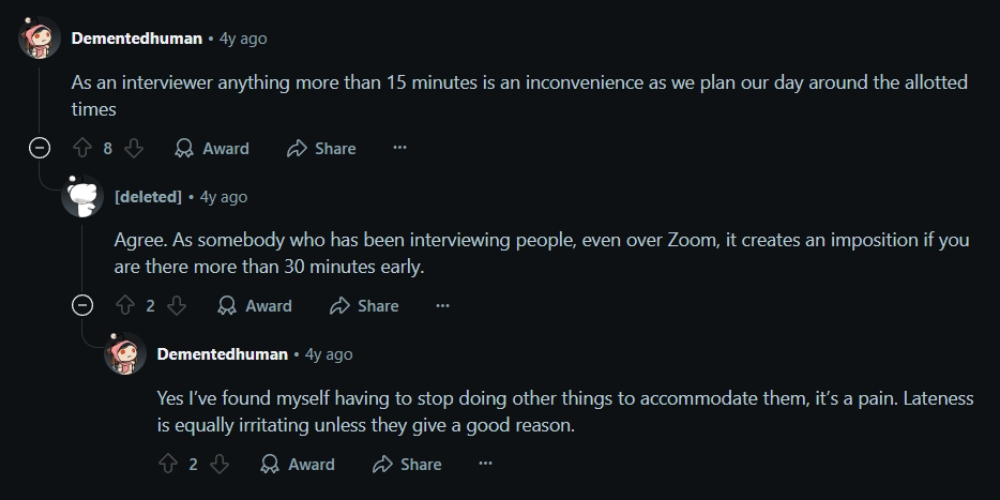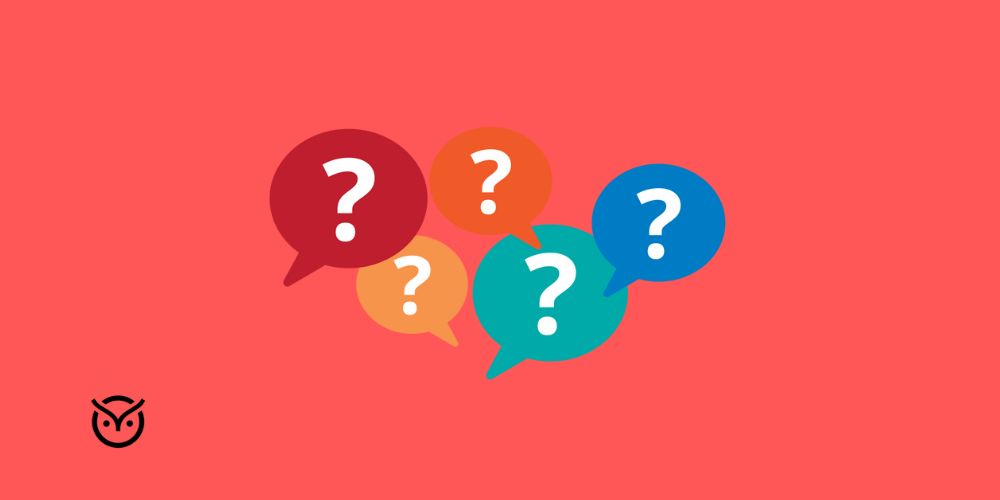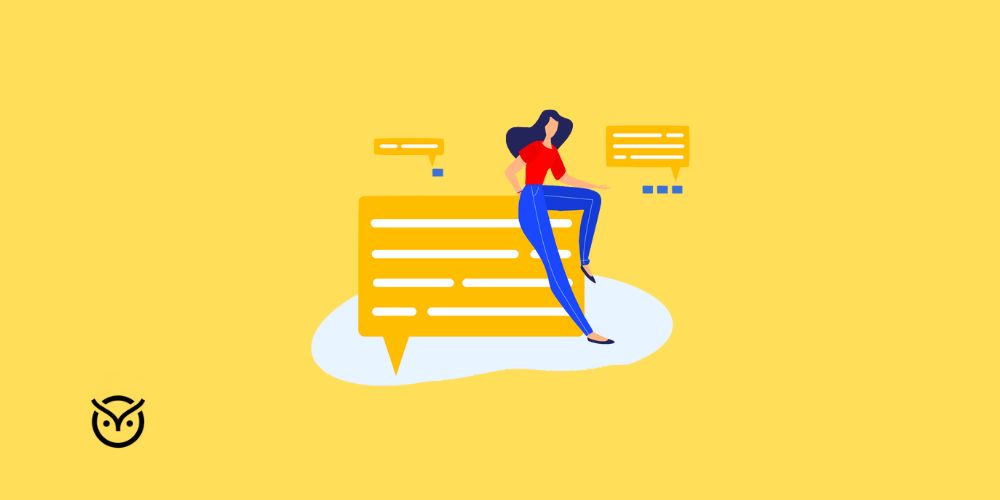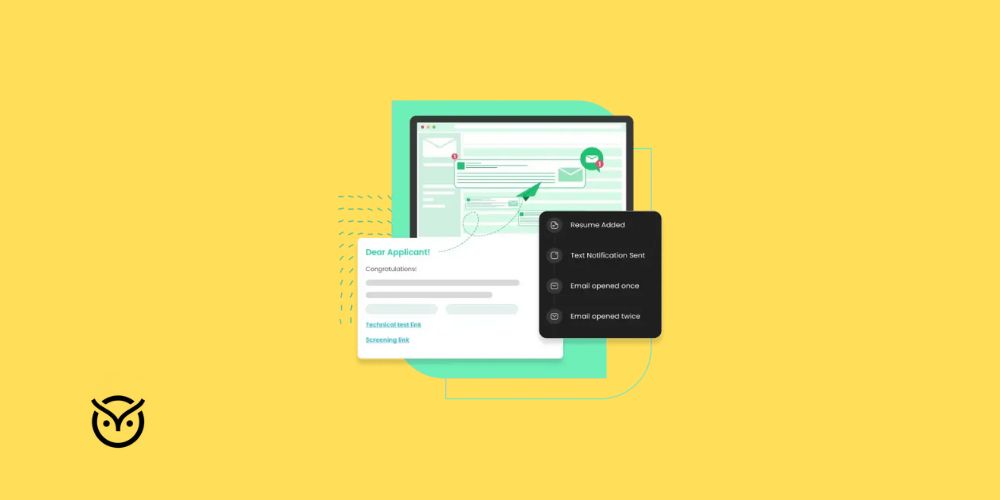
TL;DR
- Arrive 10 to 15 minutes early as the ideal window
- Showing up too early (20+ minutes) can be disruptive
- Wait nearby before checking in
- Use waiting time to review notes and calm your mind
- Notify the interviewer immediately if you’re running late
- Log in early for virtual interviews to avoid tech issues
- Adjust timing based on company culture if unsure
You’ve nailed your prep. Your resume is polished, you’ve researched the company, and your outfit is interview-ready. But now you’re stuck on something deceptively simple, “how early should you be for an interview?” It sounds like a minor detail, but showing up at the wrong time can throw off your entire first impression.
In a hiring process where every second counts, the timing of your arrival sends a message. This blog will help you figure out how early you should get to an interview, what to do while waiting, and how to manage your time like a pro, even if things go sideways.
How Early Should You Be for an Interview?
Let’s get straight to it: the golden rule is to arrive 10 to 15 minutes early. This timing shows you’re punctual, respectful, and prepared but not overbearing.
According to the Daily Mail 96% of hiring managers consider timeliness crucial in forming their first impression. But here’s the kicker: arriving too early can actually work against you. When candidates arrive more than 20 minutes early, it can disrupt a busy interviewer’s schedule or create pressure to start before they’re ready. That doesn’t help anyone.
So, how early should you arrive for interview day? Here’s a smart, real-world strategy:
- Think of this as your “buffer zone.” Get to the building or nearby location 20–25 minutes early. This gives you a cushion in case of unexpected delays like parking, find the right building, stop by the restroom, or even run a quick mental dry run without breaking a sweat.
- Wait nearby (in your car, a quiet café, or the building lobby).
- Walk in and check in at reception exactly 10–15 minutes before the interview time.
Here’s a quick guide to keep it clear:
- 10–15 minutes early = ideal.
- 20+ minutes early = too early. Wait before entering.
- Right on time or late = risky. Can come off as disorganized.
One thing to keep in mind: not all industries play by the same timing rules. Traditional industries (like finance, law, or government) often expect that 10–15-minute buffer. But startups, creative agencies, or international firms might be more relaxed. If in doubt, match the company culture. A quick check on their Glassdoor reviews or a message to your recruiter can help you read the room.
This timing window works whether you’re attending an in-person interview or logging into a video call. If it’s virtual, treat the “arrival” as logging into the platform and testing everything 10–15 minutes ahead. The rule still applies.
What to Do While Waiting for an Interview?
You’ve arrived early, great! But now what? What you do in those moments before the interview matters more than you think. It sets your mental tone and helps you shift gears from “getting there” to “showing up.”
Instead of doom-scrolling or mentally rehearsing your answers to the point of burnout, here’s what to do while waiting:
Use the Time to Your Advantage:
- Review your top three achievements you want to bring up in the interview.
- Scan the company’s lobby or website for last-minute cues like announcements, press releases, or recent awards, which can be great touchpoints.
- Mentally rehearse your opening: Your intro or elevator pitch can set the tone for the whole interview.
- Practice slow, deep breathing to calm your nerves and steady your voice.
- Review your “ask-the-interviewer” questions. Strong candidates come in with curiosity, not just answers.
- If you’re on-site, observe the company culture. Are people chatting at desks? Is the environment fast-paced or relaxed? These details help you tailor your communication style.
Just a quick reminder: being early doesn’t guarantee a great interview. There are common pitfalls that can sink even the most punctual candidates, such as talking too much, failing to research the company, or name-dropping without substance. Use your early arrival wisely to mentally prep, not panic. Punctuality earns you a good start; preparation is what helps you finish strong.
Choose Your Interview Mindset
Why Arrive Early for a Job Interview?
Timing isn’t just about punctuality. It’s about perception. When you arrive early for an interview, you’re signaling that you’re organized, respectful, and genuinely interested in the role. It’s one of the most immediate, non-verbal ways to demonstrate professionalism before you even say a word.
According to a CNBC survey, 61% of hiring managers say that arriving late, without prior notice, is one of their top interview pet peeves. But on the flip side, candidates who arrive early are often seen as more prepared, more reliable, and more composed under pressure.
So why does this matter so much?
- It helps you transition mentally. After navigating traffic, elevators, or tech setups, those few extra minutes allow you to shift from “getting there” to “being present.”
- It builds your confidence. Sitting down calmly (not rushing in flustered) helps you collect your thoughts and control your breathing and body language.
- It shows respect. Respect for the interviewer’s time, for the company, and for the process.
There’s also a psychological message embedded in your arrival. Arriving 10 to 15 minutes early signals professionalism and self-discipline. But showing up 30 minutes early? That can throw things off. As one Reddit user who interviews candidates put it:

Knowing how early should you be for an interview also means understanding your context. If it’s a virtual interview, “early” means logging in 10–15 minutes before to test your mic, video, and lighting. If it’s on-site, it means arriving at the building about 20–25 minutes before and checking in no more than 15 minutes early.
Step Into the Interviewer’s Day
What to Do If You Are Late for an Interview?
Even the most prepared candidate can get thrown off by a traffic jam, a delayed train, or a sudden tech failure. If you’re going to be late, don’t assume the worst but do act quickly and professionally. Here’s what you should do:
Let the Interviewer Know ASAP
Whether it’s a call, email, or even a message through a recruiter, reach out immediately with a brief, polite message:
“Hi [Interviewer’s Name], I’m terribly sorry, but I’m experiencing [brief reason, e.g., heavy traffic]. I’m on my way and should arrive by [new time]. I apologize for the delay and appreciate your understanding.”
Stay Calm and Reset
If you walk in flustered, it can negatively impact your tone and body language. Take a moment to breathe deeply, stand tall, and walk in with grace, even if you’re behind schedule.
Acknowledge it, but Move On
Don’t spend too much time apologizing. Acknowledge the delay once, thank them for their patience, and move confidently into the interview.
One Quora user summed it up perfectly:
Yes—be early. Do everything you can to avoid being late. Be very early—but don’t actually present yourself until 5 minutes before your interview.
They explained how arriving too early causes a ripple effect—forcing interviewers to adjust their schedule, serve refreshments earlier than planned, and even potentially walk you past other candidates. It’s not a disaster, but it’s awkward. Respect the rhythm of the workplace and time your entry, not just your arrival.
You don’t need to be perfect. You just need to bounce back the right way. Handling a rough start with poise can actually show you’re reliable under pressure, and that goes a long way.
Tips for Mastering Interview Timing
By now, you know timing isn’t just about glancing at the clock. Whether you’re showing up in person or logging in from home, knowing how early should you get to an interview can make a real difference. Use that time wisely, and these quick tips will help you manage the moment and show up ready to go.
1. Plan Backward
Start with the interview time and work your way back. Include time for transportation, parking, security checks, or logging into video platforms. Add in a 10–15 minute early arrival window. Planning backward helps you stay on track even if things shift.
2. Do a Dry Run
If your interview location is unfamiliar, test the route in advance at the same time of day. Google Maps might say 20 minutes, but reality might say 35 when it’s rush hour or if parking is limited.
3. Build in a Buffer
Aim to get to the building about 20 to 25 minutes before your interview. Then wait nearby and head in when you’re about 10 to 15 minutes out. That way, you’re on time without throwing off your interviewer’s schedule. It’s the perfect balance and the sweet spot when figuring out how early you should arrive for interview situations.
4. Prep Your Tech (for virtual interviews)
Log in 10–15 minutes before your interview to avoid tech surprises. Check your audio, video, lighting, and internet connection. Keep a backup device nearby if possible.
5. Choose the Right Time (When Possible)
According to Indeed, the best time to interview is between 10:00 a.m. and 11:30 a.m. Interviewers are usually more focused and less distracted earlier in the day, which makes it easier to connect and leave a strong impression. Try to avoid late-afternoon slots when energy levels drop and people are thinking about wrapping up. Timing matters more than most candidates realize.
Choose Your Chaos: Will You Arrive on Time?
Conclusion
If you’ve ever wondered how early should you be for an interview, now you’ve got a clear answer and a strategy to match. Getting the timing right sets the tone before you even say a word. Show up calm, prepared, and right on schedule, and you’ll start things off on the right foot. Whether it’s in person or virtual, those first few minutes matter. Use them well, and you’ll walk in with confidence and walk out one step closer to the offer.




